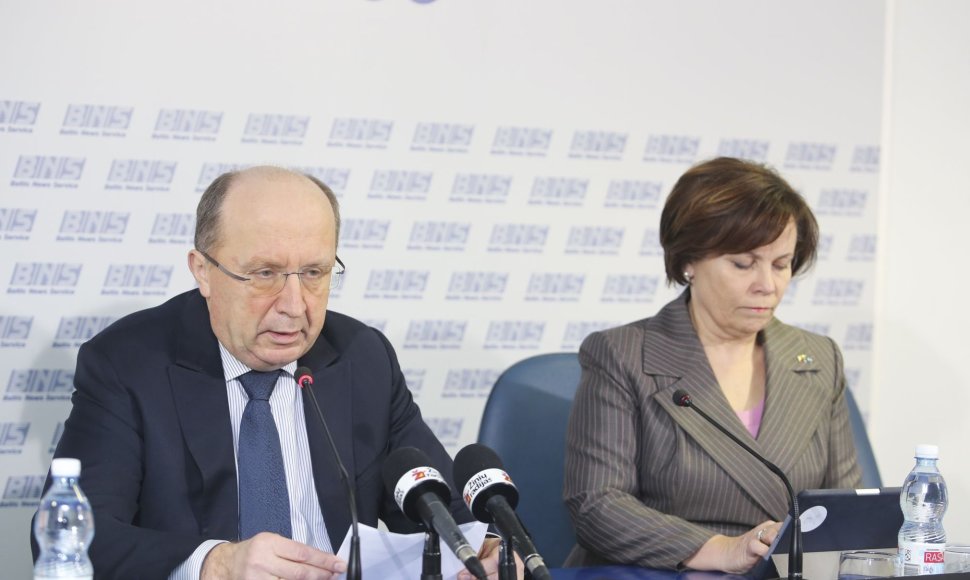Dear Leaders of the European Union,
Dear Leaders of the EU Member States,
The COVID-19 pandemic has put an unprecedented strain on economies, societies, businesses and public sectors across the countries in Europe.
Besides legitimate concerns regarding the spread of pandemics and a looming economic crisis, we have one additional but very significant disquietude - regarding a presumption circulating in Europe, that the EU and its institutions, primarily the European Commission and the European Council, must be criticized for an allegedly inadequate, inefficient response to the pandemic and to the upcoming economic crisis, as well as for lack of solidarity.
We are very concerned that the spread of erroneous and unfounded criticism towards the EU is actively promoted by the Kremlin. By utilizing all its far-reaching propaganda and disinformation tools, the Kremlin consistently and loudly proclaims that the European Union is incapable of solving this crisis. By sending humanitarian aid of dubious quality and expedience to suffering EU Member States, the Kremlin only serves its own propaganda purposes.
We are also worried that while we all are concentrating on fighting the pandemic and its economic fallout, EU strategic communication remains to be stepped up and meanwhile part of European citizens may succumb to an actively promoted feeling of anxiety and disillusionment.
With regard to the above, we, the Members of the European Parliament who co-sign this letter, address the Leaders of the EU and the Leaders of the EU Member States, by pointing out, that:
- There are no objective reasons to claim that the response to the spread of the pandemic at the EU level was inadequate. We have to remember that the health sector is an exclusive competence of the EU Member States. Also, everyone needs to remember, that the EU budget is very limited (only 1% of the EU’s GDP) compared to the budgets of Member States. This is why the EU can only play a limited role in providing real assistance during such a crisis. Notwithstanding, the EU today brings about many solutions, including several joint procurement measures for essential medical equipment.
- After some initial hesitation, Member States started to share their medical equipment with the most affected EU countries and take over patients for treatment. We can be proud that some Member States (such as Germany, France, Luxembourg) are providing significant bilateral assistance to Italy or Spain, including an impressive number of medical and protective equipment, as well as treating patients from those countries in their hospitals.
- While many Member States introduced temporary quarantines and border controls in a rush to prevent further spread of the virus, the European Commission stepped in for the functioning of the Single Market by opening “green corridors”. The EU was also effective in facilitating repatriation of EU citizens from third countries.
- While calling for even more EU solidarity, it is important also to recognize what has been done so far in preparation to respond to the forthcoming economic challenges. During the 2008 Global economic crisis, the European Central Bank (and the EU) communicated the strategy "whatever it takes" only in 2012, i.e. only 4 years later. This time, the Union has reacted promptly and decisively, thus also sending a reassuring signal to the markets. The EU has learned the lessons of 2008.
- It must not be omitted, that the European Central Bank has announced a historically largest €750 billion plan to assist the Member States' financial situation. Additional €410 billion can be made available for eurozone members through the European Stability Mechanism. Overall, the EU measures together with the economic stimulus packages of the EU Member States (especially the one of Germany, amounting to €1.1 trillion) may well exceed €2 trillion. As Europeans, we can be proud, that the EU can be so effective in preparations to prevent a deep looming economic crisis.
- In addition, the EU also provides valuable assistance to countries in the Western Balkans and in the Eastern Partnership region to fight the pandemic. These countries are facing a double challenge: they lack adequate resources and they also are under severe Kremlin propaganda claiming that the EU is weak in its response to the crisis.
We understand very well the challenges the EU and Member States are currently facing and will be facing. This will be a time of difficult choices and decisions. There also will be important topics to argue and disagree on, such as the issue of "coronabonds".
However, we want to use this opportunity to simply say: let’s fight this crisis in solidarity. This is the only way we can win this struggle of our generation. This is no place or time for a mutual “blame game” and the “blame game” against the European Union. During these trying times we are proud to declare ourselves as being Europeans. We are proud that the EU and the Member States demonstrate real leadership.
Also, we would like to ask you to be more efficient in strategic communication. People need to know how much the EU is doing in order to overcome this crisis.
Finally, we want to thank all of you for the decisions you have so far made enabling Europe to tackle the arising challenges and for the decisions you will be making in the future for the benefit of the whole European Union.
Together we shall overcome!
Sincerely,
Andrius KUBILIUS
Rasa JUKNEVIČIENĖ












